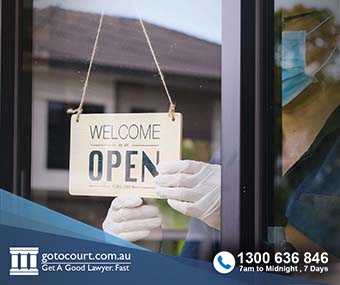Call our lawyers
now
or,
have our lawyers
call you
Bail Reform in Victoria
Updated on Apr 08, 2020 • 7 min read • 245 views • Copy Link
Bail Reform in Victoria
In January 2017, a Melbourne man drove his car through the busy Bourke Street mall, killing six people and injuring many more. After it came to light that the man had been on bail in relation to other offences at the time the tragedies occurred, Victoria’s bail laws were reformed to prioritise the protection of the community. The Honorable Paul Coghlan QC provided advice on bail reform to the state government, with the primary recommendation being that greater emphasis should be given to the assessment of the risk of further offending if the applicant is granted bail.
The recent bail reform has reframed provisions of the Bail Act 1977o ensure the maximisation of community safety whilst taking account of the presumption of innocence and the right to liberty. Under the new legislation, pre-trial liberty is a privilege rather than an entitlement, which primarily depends on a favourable assessment of risk. When a person has been charged with particular categories of offences, they now hold the sole responsibility of satisfying the court that the grant of bail is justified.
Exceptional circumstances
Under the new legislation, when a person is alleged to have committed a Schedule 1 or Schedule 2 offence whilst on bail, on summons or while subject to a Community Corrections Order, the accused must show that ‘exceptional circumstances’ exist that mean bail should be granted. Schedule 1 offences include serious property offences such as aggravated home invasion and serious drug offences. Schedule 2 offences include manslaughter, child homicide, child sex offences and serious violent offences such as intentionally causing serious injury. Applicants for bail who are charged with Schedule 2 offences also have the onus of satisfying the court of the existence of ‘compelling reasons’ for the grant of bail.
The Bail Act requires the court to have regard to the strength of the prosecution’s case, the applicant’s personal circumstances, and whether any factors suggest that the applicant poses an unacceptable risk. The primary consideration is whether all the circumstances, when viewed as a whole, can be taken as exceptional to the extent that bail is justified, even considering the serious nature of the charge. The courts recognise ‘compelling reason’ involves considering all the above relevant circumstances in addition to the applicant’s criminal history. A synthesis of all the factors must compel the conclusion that detention is not justified.
Bail reform and community protection
The changes to the Bail Act mean that courts are now permitted to use pre-trial detention to protect the wider community from perceived risks. Remand is an extremely effective safeguard against any re-offending during the judicial process. For this reason, remand confinement is not treated as punishment and prisoners are given maximum flexibility within their security rating and subjected to fewer restrictions. For example, where practicable, remand prisoners are held separate to convicted prisoners, have increased access to visitors and telephone calls, have access to legal resources including a legal library, are permitted to wear their own clothing if deemed appropriate and offered the opportunity (but not obligated) to work.
However, international studies suggest that more than 80 per cent of people who are released on bail do not commit further crimes while on bail. Further, studies have suggested that those on bail for violent crimes are some of the least likely to re-offend in a similar way while on bail. Based on this evidence, opponents of the new bail laws argue that the Victorian bail reforms address the behaviour of a small number of offenders and ignore the reality of the large majority of persons on bail who do not re-offend.
Bail reform and rehabilitation
If the court finds that an accused does not pose an unacceptable risk of the community as the first limb of a bail decision, a decision-maker will then consider the accused’s ‘surrounding circumstances’ when determining whether the imposition of bail conditions will mitigate risk (Section 5AAA, Bail Act). The bail decision maker’s considerations of the accused’s ‘personal circumstances’ do not include the impact of pre-trial detention on the accused, which may include loss of employment and access to finances for legal representation, separation from family, reduced ability to prepare for legal proceedings and the dangerous environment of prison. This has led some commentators to criticise the new bail regime as one-sided.
The principle of rehabilitation, which is a crucial consideration when sentencing a defendant, is given little consideration at the time bail is granted or refused. While rehabilitation is given a lot of weight when sentencing a person, pre-trial detention has been found to be associated with a 30 per cent increase in new serious offences and a 20 per cent increase in minor offending. Studies have also found that pre-trial release is associated with a reduced likelihood of reoffending. Advocates of more liberal bail laws, such as Deakin Law School professor Dr Marilyn McMahon, argue that while pre-trial detention may prevent further offending in the short term, it may undermine community safety in the long run and that courts considering the grant of bail should have greater regard for rehabilitation efforts by the accused.
Remand and a fair trial
It is often said that time spent on remand can reduce the length of the custodial sentence ultimately imposed on an individual who is found guilty. However, being remanded also often means that an accused has limited access to funds, resources and communication to further their criminal defence.
Further, the immediate detention of accused individuals may increase the likelihood of an accused pleading guilty in the hope of early release from prison by encouraging the court to impose a sentence of ‘time served’. This can mean that an accused who is likely to be found not guilty may plead guilty for the sake of expediency. It can also mean that a person who is likely to receive a non-custodial sentence may be sentenced to a custodial sentence in consideration of ‘time served.’
Having a criminal record that includes a custodial sentence can significantly increase the prospects of a person being sentenced to imprisonment for any future offences of a similar nature.
Further bail reform
It has been suggested that the primary question of bail should be whether an individual poses an unacceptable risk to society. In practice, courts are required to consider whether there is an unacceptable risk of the person failing to answer their bail, of reoffending if released, whether they present a threat to the welfare and safety of the community, or if there is a risk they will interfere with the justice process. This simplified approach would avoid a reverse onus which requires an accused person to satisfy the court that they should not remain on remand.
Following the Victorian bail reforms, criticisms of the new laws have abounded, including that the Bail Act does not provide any guidelines as to how an accused’s personal circumstances should be weighted and regarded in terms of making the decision as to whether to grant or refuse bail.
It is a near-impossible task to predict the future conduct of any individual. However, advocates argue that the bail system can serve as a crime prevention tool for courts, by preserving an accused’s community ties and gainful employment and thus maximising their prospects of rehabilitation.
Advocates argue that it is not for courts to preempt possible future events in safeguarding the community, but to deal with events that have already occurred. They argue that the recent changes have foregone the safeguards and measures that have long protected the rights of accused individuals when charged with criminal offences. However, at this stage, there is no further bail reform being contemplated by the Victorian government.
If you require legal advice or representation, please contact Go To Court Lawyers.

Affordable Lawyers
Our Go To Court Lawyers will assist you in all areas of law. We specialise in providing legal advice urgently – at the time when you need it most. If you need a lawyer right now, today, we can help you – no matter where you are in Australia.How It Works











1. You speak directly to a lawyer
When you call the Go To Court Legal Hotline, you will be connected directly to a lawyer, every time.


2. Get your legal situation assessed
We determine the best way forward in your legal matter, free of charge. If you want to go ahead and book a face-to-face appointment, we will connect you with a specialist in your local area.


3. We arrange everything as needed
If you want to go ahead and book a fact-to-face appointment, we will connect you with a specialist in your local area no matter where you are and even at very short notice.













